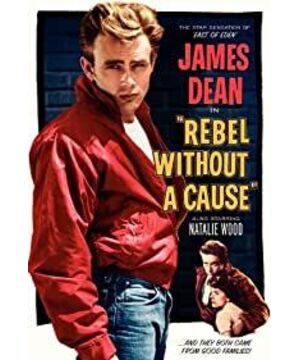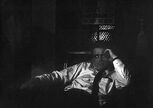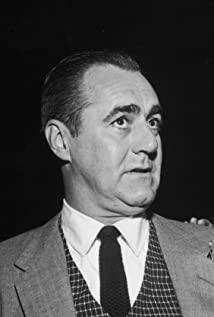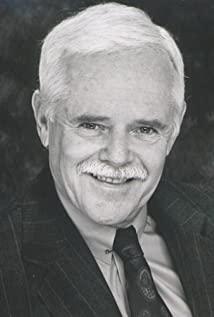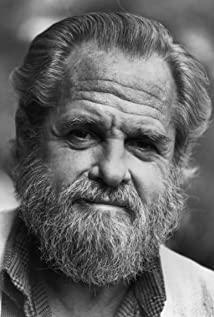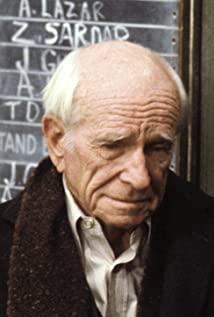When watching "Rebel Without a Cause", I couldn't help but think of another movie "Spring is not a day for reading" that I watched some time ago. What both films have in common is the charismatic, rebellious high school male lead, but the emotional tone of the films is so different that it would be interesting to talk about them together.
"Spring is not a day for reading" is a lighthearted and funny sketch. The stage of the story is Chicago with a sunny sky. The male protagonist Ferris Bueller is rebellious, has many tricks, and is willing to help others. He is the icon of the entire high school. The whole story revolves around the day when he used various tricks to deceive his parents and teachers, and successfully took his girlfriend and sister out of class to play. The biggest buffoon in the movie is their school director, Mr. Edward Rooney, who tried his best to obstruct Ferris' actions, even sneaking into Ferris's house to try to expose his falsehoods, but ended up in a very embarrassing end. In the ending of the story, Ferris relies on his own cleverness and courage to play wildly for a day without showing any flaws in the parents who are rushing home. It is a comedy ending.
"Rebel Without a Cause" is much heavier, and the whole story is the encounter of Jim, Plato and Judy. They all have psychological problems caused by their own families. They met at the youth correctional center of the police station at the beginning, and later became friends by chance. But this youthful rebellion didn't last long, and soon their lives were shrouded in black clouds that couldn't be dispelled.
Both "Spring Is Not a Day for Reading" and "Rebel Without a Cause" both reflect educational issues and the growing state of teenagers. The former discusses school education, while the latter focuses on family education and has more obvious intentions. In "Spring is not a day for reading", the school is shaped into a very boring and depressing place for young people to grow up. In the classroom, the teacher's lectures are like chanting scriptures, and the young people below are all listless and lethargic, which is in stark contrast to the high-spiritedness of a few people who skip class. And a concentrated reflection of all these problems is Mr. Rooney, who is a completely traditional teacher whose goal is to "manage" his students. When a student has any special personality, deviates from the rules and tracks set by him, or has a mind of rebelling against his authority, he will suppress him mercilessly. Without taking it all seriously, Ferris Bueller, who didn't care about his authority, became his natural enemy. The film puts unparalleled luck and ingenuity on Ferris Bueller, and resolves all awkward conflicts into a complete comedy.
It can be said that Ferris Bueller, as a smart, powerful and comedic male protagonist, to a certain extent dispels the cruelty of the influence of education on the growth of teenagers implicit in the film. Ferris' basic friend Cameron is a figure used to compare with him. Cameron doesn't have Ferris's ease and high spirits. He is more like an ordinary teenager of this age, worried about the oppressive school education, fear and anxiety about the strict family, and confused about his future. "The whole person is too nervous." In order to make him relax and happy, Ferris performed songs and dances for him while standing on the float. After the climax of the film, Cameron destroyed his father's most precious car after experiencing entanglement. He was determined not to be obedient, but to face his father and take responsibility. This scene is the most exciting part of the movie in my heart.
Jim Stark in "Rebel Without a Cause" does not have the legendary comedy color of Ferris Bueller at all. The rebellion and pain of his growth are more real and touching. The male protagonist Jim Stark is a very charming and contradictory mixture. From him, we can see the fragile distortion of teenagers under the pain and repression, but also reflect the unparalleled kindness and strength brought by sincerity. It is mentioned many times in the film that he is an "act sincere". This wonderful trait makes him stand out among the "bad" youths and is admired by his peers. On the other hand, this thirst for truth is also doomed to him The relationship with his family can only be a tough knot.
The gender roles of parents in Jim Stark's family have been reversed from tradition. The mother is strong and controlling, and the father is submissive and does not dare to say a "no" to the mother. Jim seems to see himself in his father, lest he be called "chicken", a word that always irritates him deeply, he thinks of his father and fears the fact that he can never grow into a "man" again. During this process, Jim has been resisting. He angrily wants his father to "stand up" and face his mother for himself; he disregards his family's opposition to participate in the "chicken run", and wants to resolve the disputes with the local youth in an open and fair manner Instead of just escaping from it; when something happened to "chicken run", his first reaction was to report to the police station, even if he wanted to break with his parents who advised him not to stand out. Of course Jim's parents loved him and cared about him, but the almost hypocritical decent, secure life they were after wasn't exactly what Jim wanted. Jim wasn't going to listen to his parents saying, "Ten years from now, it's nothing." There's only an empty present, not a promising future. What Jim did was to break the shell of hypocrisy and build the real and correct present.
Jim's other two partners are both plagued by family problems. Judy was humiliated and controlled by her father and contracted an almost morbid Electra complex; Plato was abandoned by her parents and had serious psychological problems without effective intervention. The three snuggled together briefly, and their peers formed a "family". Plato attaches to Jim and Judy as father and mother, and fantasizes about living happily with them in Utopia, enjoying the warmth of a family that he has never had before. When this fantasy shattered, the intense psychological stress caused him to fall into irreparable impulsive despair, and the rebellion eventually became a tragedy.
Whether for Jim Stark or Ferris Bueller, and their peers, the so-called rebellion is just a filling of the emptiness that must be passed through growing up. The carefree childhood is gone, the future promised by parents and teachers is still confused, only the current stimulation or feelings are real and graspable. Although they are indeed short-sighted, fragile, and often indecisive, isn't this the most precious time when they can travel slowly and find themselves facing themselves? It's just that the cruelty of youth is that some people can finally successfully pass through the maze and grow up to be as mature and reliable (and probably boring) people as their parents. stay at that time.
View more about Rebel Without a Cause reviews


